| Country | Grants | Loans |
|---|---|---|
Austria 2015/16 - grants and loans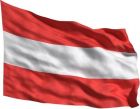 | The federal student grants can systematically be divided into two sections: direct study financing received in cash, and indirect study financing which the student may receive by a transfer payment to the students’ parents, or through non-cash benefits. Direct student support is paid out in monthly instalments up to EUR 9 492 per year on the basis of social criteria and of a good academic performance. The amount is assessed on the basis of income and family conditions. Students may only be required to pay back grants when proof of academic achievement is missing after the first two semesters. | No student loans. |
Belgium - flemish 2015/16 - grants and loans | Student grants are allocated on the basis of economic need. Eligibility is determined by the income of parents and/or the student. Amounts typically range from EUR 256.33 to EUR 3 966.88. However, a student is entitled to an extraordinary grant of up to EUR 5 340.86 on the basis of extremely low income and a lack of support from family members. | No loans. |
Belgium - french 2015/16 - grants and loans | Public grants in academic year 2015/16 are available for low income students. However, students over 35 years of age registered in the first year of higher education do not receive any public grant. Students must apply for this financial benefit each year. The amount granted ranges from EUR 394 to 4 821 per year depending on household income. | Loans are available for families with at least three dependent children. Very few (less than 0.01 %) take out a loan (2014/15). |
Belgium - german 2015/16 - grants and loans | Student grants are need-based. Parental income determines eligibility. Annual grant amounts are between EUR 362 and 2 469 and are paid by the Ministry of the German-speaking Community. | The possibility exists to take out loans of EUR 1 000 for the first cycle and EUR 1 500 for the second cycle. Interest is between 0 and 3 %, depending on the income of the student, and the loan needs to be repaid at the latest three years after graduation. The loans are managed by the Province of Liège, and the Management Committee responsible for student loans can decide about an additional loan of EUR 1 500 on a case-by-case basis. However, no students actually took out a loan in 2013/14. |
Bulgaria 2015/16 - grants and loans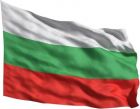 | Grants/scholarships are available to full-time students. They are distributed by higher education institutions, taking into account need-based and merit-based criteria. Grant amounts range from BGN 50 to 120/month. | Full-time students who are less than 35 years old can apply for state guaranteed loans. |
Croatia 2015/16 - grants and loans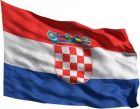 | At national level, student grants are provided to full time students by two public sources: Ministry of Science, Education and Sports as well as the National Foundation for the Support of Student Living Standard. Both institutions award grants according to a range of criteria which include both need- and merit-based elements. The grants range from HRK 500 to 1 000 per month and are available for 12 months each year until the graduation (i.e. total of 6 000-12 000 per year). Further grants for students are provided by a number of regional and local governments. Part-time students are not eligible to apply for state-funded grants. | There are no loans. |
Cyprus 2015/16 - grants and loans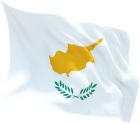 | A big number of Cypriot students, whether studying in Cyprus or abroad, receive an annual educational grant (basic grant) from the Ministry of Finance, based on family income criteria. The minimum educational grant is EUR 1 450 and the maximum is EUR 2 565 per year. The basic grant is the same for the first and second cycle. Approximately 10 % of Cypriot and other EU students, studying in Cyprus, receive targeted need-based grants to cover living, books, rental, and computer expenses based on their socioeconomic status. The minimum targeted grant is EUR 300 and the maximum is EUR 3 692 per year. The need-based grant is given to first-cycle students only. About 2 % of students receive merit and need-based scholarships. The criteria for scholarships are academic excellence and socioeconomic status. Students may receive up to EUR 2 500-3 500 per year for an undergraduate programme (1st cycle), EUR 2 500-4 000 per year for a master's programme (2nd cycle) and EUR 4 000-6 000 for a PhD programme (3rd cycle). | Study loans are available only for owners of property in the northern part of Cyprus. |
Czech Republic 2015/16 - grants and loans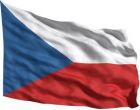 | Scholarships can be granted on the basis of excellence in studies, or for research, artistic and other activities. These scholarships are provided by all public higher education institutions. Scholarships are granted to students from regions other than the seat of the higher education institution as an accommodation scholarship (CZK 5 400/year). It is received by around 47 % of students. Social scholarships are available for students in a difficult economic situation. The amount received is the same for everyone (CZK 16 200/year), and 0.9 % of students receive this support. | No publicly subsidised loans are provided. |
Denmark 2015/16 - grants and loans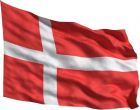 | State grants are available to all full-time Danish citizens in recognised educational programmes if they fulfil certain requirements. International students (EU and outside EU) must fulfil some special conditions to be placed on an equal footing with Danish citizens and receive state education support. The maximum amount is DKK 5 903 per month for 12 months each year for students living independently. Extra grants are available for students who become parents when they live with another recipient of education support (DKK 2 358) and for single parents (DKK 5 903). Additional grants of DKK 8 394 per month are available for students with a disability when the disabled is not able to work alongside the education. The amounts shown are for the year 2015. The fees are regulated yearly on a calendar basis so new fees will apply for 1 January 2016. All grants are taxable. | State loans of DKK 3 020 per month are available to all full-time students who are entitled to a state grant. Supplementary student loans for students who are parents: DKK 1 511 per month. 'End-loan' for students who have used all their state grants and who have no more than 12 or 24 months left of their educational programme: DKK 7 791 per month. During the period of study, a 4 % annual interest rate applies. Students must start paying back no later than one year after the end of the year in which they graduate. The loan must be repaid within 15 years. About half of all students make use of state loans. No family allowances and no tax benefits for parents. |
England 2015/16 - grants and loans | 1st cycle full-time – the support package includes a need based grant for living costs. The grant is awarded on a sliding scale with a full grant of GBP 3 387 for students with a household income of GBP 25 000 or less and a partial grant for students with a household income of up to GBP 42 620. In 2013/14, 58 %of applicants eligible for support (grant and/or loan) were awarded a grant (43 % a full grant and 15 % a partial grant). Students who are lone parents or who have certain disabilities may be eligible for a special support grant. Many institutions also offer other bursaries and scholarships aimed at students from under-represented groups. | For 1st cycle full-time students, the support package includes a loan for living costs for all students. The maximum for students living in the family home is GBP 4 565. For students living away from the family home the maximum is GBP 5 740 outside London and GBP 8 009 in London. The amount is reduced for students who receive a need based grant. Repayments as for fee loans. 1st cycle part-time – grants and loans for living costs are not available. 2nd cycle postgraduate taught – there is no universal support package. However, in 2015/16 under the Postgraduate Support Scheme (PSS) the Higher Education Funding Council for England (HEFCE) is providing funding for 10 000 scholarships of GBP 10 000 for Masters Students. From 2016/17, PPS will introduce income-contingent loans for students under 30 years old wishing to undertake a postgraduate taught masters in any subject. |
Estonia 2015/16 - grants and loans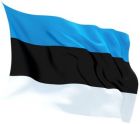 | From 2013/14, a new study grant system has been implemented. The new system includes need- and merit-based support. Need-based grants vary from EUR 75 to 220 per month for 10 months per year depending on students and family income. At least 25 % of students are thought to be eligible for this support, although 17 % of students received the grant in 2014/15. Since 2014, students may apply for a merit-based grant of EUR 100 per month based on excellent study results. This is available for 4 % of the student population enrolled since 2013/14. A new scholarship programme to support the development of smart specialisation areas has also been established. A merit-based grant of EUR 160 per month (1 600 per year) is available to approximately 50 % of full time students in defined areas. For computing and information technology curricula, the amount of the grant is EUR 160-300 per month (EUR 1 600-3 000 per year). From 2014/15, students with disabilities and students growing up in care institutions may apply for a higher education scholarship. In the case of disabled students, the scholarship ranges from EUR 60-510 per month. All students who enrolled in HEIs before 2013/14 academic year have the right to a merit-based grant up until 2015/16. From then on, the new system will be fully implemented. | Full-time students can apply for state guaranteed loans. Estonian citizens or persons with a permanent residence permit, studying full-time for nine months or more have the right to obtain a study loan. The maximum amount is EUR 1 920/academic year, and 8 % of students took such a loan in 2013/14. |
Finland 2015/16 - grants and loans | Study grants (SG), for which a certain number of credits are required, are universal for the regular length of study. Amounts range from EUR 55.96 to 336.76/month and depend on age and whether the student lives with parent(s) as well as on the date of starting the studies. A housing supplement (HS) covers 80 % of the rent for students living independently. The maximum amount is EUR 201.60/month. HS is an integrated part of the State’s student financial aid programme, and aims to better match support to real need (i.e. less support for those students who have lower housing costs). From the student perspective, the distinction between study grant and housing supplement is therefore largely theoretical. SG and HS are available for nine months only if the student's income is below EUR 11 850/year. This is not an absolute maximum but refers to a typical situation. For each month that the study grant or housing supplement is received, the exemption amount is on average EUR 660, and for each aid-free month EUR 1 970. Assuming that a student receives aid for 9 months, (s)he would be allowed to earn up to EUR 11 850 a year in other income. The income may be earned at any time during the calendar year. SG and HS can be taken for 12 months a year, but typically they are taken for 9 months. Hence, a common amount is EUR 8445.24 (of which EUR 3 600 is a student loan, which is used only by 40 % of students in higher education). The maximum is EUR 11 260.32. | Student loans of EUR 400/month are government guaranteed. Higher education students who graduate within the target time can be entitled to student loan tax deduction (for studies that started prior to 1.8.2014) or compensation (for studies that started on 1.8.2014 or after). |
France 2015/16 - grants and loans | Grants are awarded on the basis of financial need to students less than 28 years of age. The annual amount awarded for need-based grants depends on an assessment of social criteria, with students classified into categories based on family income. Within the framework of a reform of grants (2014) a new category of grant amounting to EUR 1 007 has been introduced for the most deprived (based on family income) lower middle-class students who previously benefited only from a fee waiver. As of 2014, students who receive a need-based grant can also get a complementary merit-based grant (based on school performance from the baccalauréat results) which amounts to EUR 900. All grant holders receive free tuition and a waiver from social security contributions (EUR 215). In 2014/15, the amount of the annual grant ranges from EUR 0 (for lower middle-class students who only receive a fee waiver) to EUR 5 545. | Loans are also available. In 2008, the Ministry of Higher Education and Research started a new policy to make loans easier for all students aged under 28. It provides loans up to a maximum of EUR 15 000, guaranteed by a special fund 'OSEO'. Less than 0.1 % of university students take out such a loan. |
Germany 2015/16 - grants and loans | General public student support (BAföG) is awarded as a grant for one half of the individual amount, and as an interest free loan for the other half. Total amounts range from EUR 10 to EUR 670/month for 12 months/year. Eligibility and amount are determined by assessment of student need based on income, family situation, housing situation and disability. A maximum of EUR 10 000 needs to be paid back. The average amount paid for 2014 was EUR 5 376 per year (EUR 448 per month). Students need to be under the age of 30 (35 for master studies) to be eligible for public student support. | An education loan (Bildungskredit) covers living costs which are not covered by BAföG. It is available of up to EUR 7 200. Also there is a Study loan (KfW-Studienkredit) of up to EUR 54 600. Both loans are paid out in monthly instalments. |
Hungary 2015/16 - grants and loans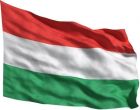 | The regular need-based grant is paid for a period of 10 months/year. The minimum of the grant specified by the law for the disadvantaged, for students with one living parent and those under legal guardianship until the age of 18 is HUF 119 000/academic year. The minimum of the grant specified by the law for the disabled, multiple disadvantaged, orphans, students supporting dependents or those from a large family is HUF 238 000/academic year. In addition to the regular need-based grant (shown in the diagram above), there is a scholarship scheme jointly financed by municipalities and higher education institutions (Bursa Hungarica scholarship). One-off initial and emergency grants are also available. Only state-funded students can receive a merit-based grant. In order to receive a merit-based grant, students have to obtain a certain number of credits or a minimum mark stipulated by the HEI. The grants are paid for a period of 10 months/year. A maximum of 50 % of students at state-funded places are awarded a merit-based grant, and the minimum amount of the grant is HUF 59 500/academic year. There is also a 'Scholarship of the Hungarian Republic', which is granted only to the best performing full time students (maximum 0.8 % of statefunded students). It is granted for 10 months, and the amount of the scholarship is 34 000 HUF/month (in total 340 000HUF/year). | A government-subsidised loan (Student Loan 1) is available for both state-funded and fee-paying students (max. HUF 50 000/month for a period of 10 months/year). Orphans and those with unemployed parents can receive HUF 10 000/month more. The maximum duration is 5 years (7 for longer diploma courses such as medicine). Students below 40 years of age are eligible. It is a general-purpose loan. A second type of student loan (Student Loan 2) has been available for fee-paying students since the academic year 2012/13. It is a government subsidised loan with interest rates lower than for Student Loan 1 (above). It can only be spent on tuition fees and can cover the whole of the tuition fee. Fee paying students can take out both types of loans to cover both study costs and living costs. |
Iceland 2015/16 - grants and loans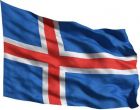 | In principle no public grants/scholarships are available. However, some merit-based grants are provided by universities and by the Icelandic Research Fund for Graduate Students for the 2nd cycle students. | Loans are provided to full-time students by the Icelandic Student Loan Fund. The amount depends on the size of student's family and personal circumstances including income. The basic individual support for academic year 2014/15 is ISK 165 717/month. Around 50 % of students take out a student loan. |
Ireland 2015/16 - grants and loans | Need-based grants are provided to full-time students by the Department of Education & Skills. Their amounts range from EUR 305 to 5 915 per academic year, depending on means, family size and distance from institutions. Students who qualify for grants also have the student contribution or tuition fees paid on their behalf. The same department provides bursaries with a value of EUR 2 000 per academic year. The bursaries require qualification under both merit and need-based criteria. Students need to satisfy specific conditions of residence, means, nationality and previous academic attainment to be eligible for grants. Students have to be enrolled full-time. | No loans or family allowances. |
Italy 2015/16 - grants and loans | Public grants are allocated on the basis of both economic need and academic merit. The amount depends on whether the student lives with her/his parents and is defined, within the range mentioned in the diagram above, by the Regional authorities. The Ministry sets the minimum and maximum amount of the grant for each new academic year. Currently the ministerial decree for 2015-2016 has not yet been issued. For 2014/15, the minimum amount of the grant was EUR 1 925.37 and the maximum amount of the grant was EUR 5 108.14. | No loans or family allowances. |
Latvia 2015/16 - grants and loans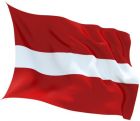 | Public grants (state-subsidised study places) are allocated on the basis of academic merit. These grants are primarily available in priority areas; currently natural sciences, computer sciences and engineering. Other public grants are traditionally available based on academic merit. Recently, more need-based criteria are taken into account. Disabled or orphaned students with families, from large families or in economic need are treated favourably. These state budget grants are EUR 99.60/month (per 10 months) for the first and second cycle. Only 14 % of all students studying in state financed places at public HEIs receive this funding support. | Two types of loans exist. The first is to cover tuition costs and the second to cover living costs with a cap of EUR 170.74/month. Loans need to be paid back 12 months after the end of the degree programme. In 2014/15, about 13 % of fee-paying students benefited from the loan for tuition costs, and 9 % of state subsidised students took out a loan for living expenses (2014/15). Both in 2014 and 2015 the Government has published a list of number of occupations considered to be significant for national economic development, and the state will cover part of the student loan for those students studying in these fields. |
Liechtenstein 2015/16 - grants and loans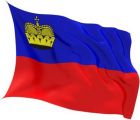 | Public support consists of a variable combination of grants and loans. The maximum total amount is CHF 25 000, of which 40-60 % are a grant and the rest is a loan. From age 32 on, the state financial support consists of interest free loans only. Grants are available for students, depending on their income (principle of subsidiarity). They need to have the Liechtenstein citizenship or reside in Liechtenstein to be eligible. The amount is calculated on the basis of admissible costs and reasonable expectations of self-support. Up to the age of 25 and if students have not been working fulltime for at least 2 years, parents are included in the eligibility and calculation process. State scholarships and grants are fully portable to allow for mobility (4). There is no financial support for incoming students. (4) Due to limited education programmes within the country 90 % of students from Liechtenstein study abroad (Switzerland, Austria). | Public support consists of a variable combination of grants and loans.
The maximum total amount is CHF 25 000, of which 40-60 % are a grant and
the rest is a loan. From age 32 on, the state financial support
consists of interest free loans only. Grants are available for students,
depending on their income (principle of subsidiarity). They need to
have the Liechtenstein citizenship or reside in Liechtenstein to be
eligible. The amount is calculated on the basis of admissible costs and
reasonable expectations of self-support. Up to the age of 25 and if students have not been working fulltime for at least 2 years, parents are included in the eligibility and calculation process. State scholarships and grants are fully portable to allow for mobility (4). There is no financial support for incoming students. (4) Due to limited education programmes within the country 90 % of students from Liechtenstein study abroad (Switzerland, Austria). |
Lithuania 2015/16 - grants and loans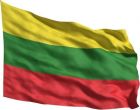 | There are three main types of grants: for academic achievement, social scholarships and study scholarship The amount of the academic achievement scholarship ranges from EUR 6 to 290 per month. The total period of receiving the scholarship depends on HEIs and varies from 10 to 12 months. About 6.2 % first cycle and 6 % second cycle students receive that type of scholarship. The study scholarship amount is the same as the fee amount (varying according to the study programme, and/or form of study). In 2014, about 1.34 % received a study scholarship. Social scholarships are available for students from a low socio-economic background, disabled students and orphans. It is EUR 114 per month. Students can apply for this scholarship twice a year. If a student meets requirements each time, s/he gets the scholarship for 12 months. About 4 % students receive social scholarship. First cycle or integrated study students not funded by the State who have finished the first two academic years withthe best results (in the case of part-time studies – half of a study programme) may also be reimbursed for the tuition fee paid. The number of students receiving this support represents no more than 10 % of the total number of statefunded students who have finished the appropriate period with the best results. | In 2014, about 5 % of students took out a student loan mainly designed to cover the cost of tuition fees. |
Malta 2015/16 - grants and loans | Student maintenance grants are provided to all Maltese, EU/EEA students and other students who are following a full-time first-cycle degree course. Students following a general course receive an annual grant of EUR 465 plus ten stipend instalments of EUR 150 every four weeks between October and June. Students studying for a 'prescribed course' receive an annual grant of EUR 698.81 and ten stipend instalments of EUR 150.59 every four weeks between October and June. There is also an additional one-time grant of either EUR 465.87 or EUR 698.81 equivalent to the annual grant at the beginning of a study programme. Maintenance grants are also offered in some second-cycle degree courses leading to a regulated profession. Students who, due to proven hardship, are deemed to qualify for a supplementary maintenance grant receive ten instalments of EUR 288.93 every four weeks, instead of the stipend given to general or prescribed courses. Students receiving the supplementary maintenance grant who are following a general course receive an annual grant of EUR 582.34 while students following a prescribed course receive an annual grant of EUR 698.81. Since 1 January 2014 the Student Maintenance Grant, has increased on a yearly basis due to the national Cost of Living Adjustment (COLA). While in January 2014 the supplementary grant was increased by EUR 300, in January 2015 the supplementary grant has only slightly increased due to the new COLA adjustment. Several scholarship schemes are available to students who wish to pursue studies abroad. | No loans and no family allowances are in place. |
Montenegro 2015/16 - grants and loans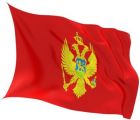 | There is no need-based grant. | Merit-based grants are provided for students showing particular
scientific or artistic inclinations and winning awards at international
and national competitions. Grants are awarded on the basis of the
contest announced by the Ministry at least two months before the
beginning of an academic year. Grants are not awarded to student loan
beneficiaries. Grant amount depends on the level of the maximum loan increased by 30-50 %. The maximum grant is EUR 86/month paid in ten monthly instalments. Loans are available on the basis of student performance. The average loan is EUR 45/month for ten monthly instalments. |
Norway 2015/16 - grants and loans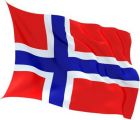 | Norwegian students are entitled to loans and grants from the State Educational Loan Fund (NSELF). The basic support is at most NOK 97 850 per academic year (10 months). The basic support is initially given as a loan. However, 40 % of the loan may be converted to a grant for students who live away from their parents and pass all exams. The grant will be reduced if the student's income or assets exceed certain limits. The amounts are universal for all students who are eligible for financial support. The maximum amount of the grant is NOK 39 140. Students under 25 years of age may also receive a grant for travel costs. Financial support is also given for study abroad as there is full portability of NSELF loans and grants. Exchange students and full degree students qualify for support. Students taking care of children may receive a grant for each child under the age of 16. Students on parental leave can be given a grant for up to 49 weeks, and students who cannot study because of illness may have the loan converted into a grant for up to four months and 15 days per academic year. Physically disabled students can receive an extra grant if they are unable to work during their studies, and they may also receive basic support for twelve months per year. | Norwegian students are entitled to loans and grants from the State
Educational Loan Fund (NSELF). The basic support is at most NOK 97 850
per academic year (10 months). The basic support is initially given as a
loan. However, 40 % of the loan may be converted to a grant for
students who live away from their parents and pass all exams. The grant
will be reduced if the student's income or assets exceed certain limits.
The amounts are universal for all students who are eligible for
financial support. The maximum amount of the grant is NOK 39 140. Students under 25 years of age may also receive a grant for travel costs. Financial support is also given for study abroad as there is full portability of NSELF loans and grants. Exchange students and full degree students qualify for support. Students taking care of children may receive a grant for each child under the age of 16. Students on parental leave can be given a grant for up to 49 weeks, and students who cannot study because of illness may have the loan converted into a grant for up to four months and 15 days per academic year. Physically disabled students can receive an extra grant if they are unable to work during their studies, and they may also receive basic support for twelve months per year. |
Nothern Ireland 2015/16 - grants and loans | 1st cycle full-time: the support package includes a need-based grant for living costs. The grant is awarded on a sliding scale with a full grant of GBP 3 475 for students with a household income of GBP 19 203 or less, with partial grants for students whose household income is up to GBP 41 065. In 2013/14, 60 % of applicants eligible for support (grant and/or loan) were awarded a grant: 38 % were awarded a full grant and 22 % were awarded a partial grant. All institutions must offer an additional bursary, whose amount varies, to students who receive the maximum grant for living costs or special support grant. | The support package also includes a loan for living costs for all students. The maximum loan is GBP 3 750 for students studying in Northern Ireland, GBP 6 780 for students studying in London, and GBP 4 840 for students studying elsewhere. The amount is reduced for students who receive a need based grant. Repayment as for tuition fee loans. 1st cycle part-time: the support package includes a need based grant towards payment of fees (though it is not intended to cover them completely). The grant is awarded on a sliding scale with a full grant of GBP 1 230 for students who are studying at 75 % or greater intensity and whose household income is GBP 16 842 or less, with partial grants for students whose household income is up to GBP 25 420. The course must be equivalent to at least 50 % of full-time study for a student to qualify for the fee grant. 2nd cycle – there is no universal support package. 2nd cycle postgraduate non-taught – individual institutions can provide a merit based grant, which tends to follow the minimum stipend recommended by Research Councils UK, GBP 14 057 for 2015/16. |
Poland 2015/16 - grants and loans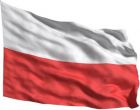 | Need-based grants are available for students with a low personal/family income, and for students with disabilities, the income threshold to be eligible for need-based grants for students with low family income is PLN 592.8-895.7 per person per month (the exact level of the threshold from this range depends on the decision of a higher education institution). The average amount is PLN 4 302.3 per year (2013). Merit-based grants are allocated to the best-performing students. The average amount of the merit-based grant is PLN 4 213.9 (2013) per year. The total monthly amount of the needs-based grant and the merit-based grant may not be more than 90 % of the lowest basic pay of an assistant (the lowest academic position at higher education institutions) as regulated by the legislation on the remuneration of academic staff (PLN 2245 in 2014). | Loans of PLN 6 000/year may be taken out in any cycle for those students whose personal income is below net PLN 2 300/month (in 2013). The state guarantees part of the loans for low income students: students with family income of PLN 600/month per person have been granted a 100 % guarantee of their loan and students with a family income of PLN 1 000/month a 70 % guarantee. |
Portugal 2015/16 - grants and loans | Student grants can be need or merit based. Eligibility for need-based scholarships is determined by the income of the student and his family. Need-based grant amounts depend on the fee levels and vary between EUR 1 063 and EUR 5 675. Merit-based grants are set at EUR 2 525.00. There are several criteria, namely:
Additional grants are provided for the first time in 2014/15 to a maximum of 1 000 students who move to study in regions of Portugal where there is less pressure on the population. The annual amount is EUR 1 500. | There is a special loan scheme for higher education students at low rates, with government guarantee. |
Romania 2015/16 - grants and loans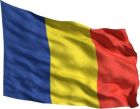 | Need-based grants, most commonly amounting to RON 300/month and payable for 10 months, are based on the financial situation of the student. Merit-based grants take different forms: study bursaries (most commonly RON 250/month for 10 months) and merit-based scholarships (most commonly RON 400/month for 10 months). High achievement scholarships (of which one exists per faculty) can reach up to RON 600/month for 10 months. Grants for excellent performance in research at Bachelor level have a ceiling of RON 500/month for 10 months. The grant amounts are determined by each higher education institution. They aim to cover the costs of living in student accommodation and of meals. The university establishes the number of grants out of the total fund for higher education expenses. The funds are annually provided by the ministry. There are also subsidies granted by the Ministry of Education for accommodation and meals. | No student loans. |
Scotland 2015/16 - grants and loans | Fundamental changes to the student support package were introduced in the academic year 2013/14. Both grants and loans are available to full-time students depending on circumstances. The 'Young Student’s Bursary' of up to GBP 1 875 per year is available to students from low income backgrounds. The ‘Independent Students’ Bursary’ of up to GBP 875 per year is available to students over the age of 25 or who are living with a partner. Other grants also exist for students with disabilities. | Many students take out loans. Depending on household income, young students can borrow a maximum of GBP 5 750 per year. Likewise, independent students can borrow a maximum of GBP 6 750 per year. All students can borrow GBP 4 750 per year irrespective of household income. |
Slovakia 2015/16 - grants and loans | There is a legal right for a need-based grant/scholarship subject to specified conditions. The amount of this need-based scholarship varies from EUR 10 to EUR 275 per month. Merit-based motivation scholarships are granted by the higher education institutions for excellent results in studies, research and development, artistic or sporting activity. The amount of the motivation scholarship is set by higher education institutions or faculties. In an effort to encourage students’ interest in selected scientific fields of study, Universities are provided with additional finances for merit-based scholarships. The scholarship amount is determined by Universities; but the funding represents an amount of EUR 1 000 per academic year for 15 % of students in the study fields identified. | Publicly subsidised loans provided by the Education Support Fund are available for full and part-time students throughout the regular duration of study programmes. Loans range from EUR 500 per year to 2 500 per year and are taken by about 1 % of students. |
Slovenia 2015/16 - grants and loans | Grants/scholarships are available for economically and socially disadvantaged students. They are awarded according to a range of criteria which include both need and merit-based elements. Merit-based scholarships also exist. The grants are available for 12 months a year. Students must be under 27 years old when enrolling for their first degree to be eligible for public support. | No loans are provided. |
Spain 2015/16 - grants and loans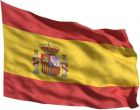 | Although student grants exist at national, regional and local level, only those at national level have been considered here, as they are quantitatively the most important ones. The national grants are made up by several components, and each student may receive one or more of the components depending on their family income (grades are also taken into account in one of the components). These components are: fixed amount of EUR 1 500 based on the student’s family income; fixed amount of EUR 1 500 for living costs, for students living outside the family home during their studies and who also meet certain income criteria; and a variable amount, based on the student’s family income and grades. The minimum variable amount is EUR 60, and the maximum amount in 2013/14 was EUR 2 843.49 (this amount varies from year to year, since it results from distributing among the applicants the money that is left over after paying all the other components). Full-time students can apply for all components, whereas part-time students can only apply for the minimum amount of the variable amount component (EUR 60), and distance education students can apply for the complete variable amount component. There is also a last component aimed at students whose family residence is located in the Canary Islands, the Balearic Islands, or the autonomous cities of Ceuta and Melilla, and whose university is located either in another one of those locations or in mainland Spain. This component ranges from EUR 442 to 937. Since this kind of support is granted on an individual level, and each student receives a different amount, the 'most common' value cannot be provided. However, the average amount for a grant (including fees and other components) is EUR 2 498.84. All students who receive grants are also exempt from paying fees. Students can receive different grant components depending on their family income, grades and other circumstances. The minimum grant is EUR 60 plus a waiver from tuition fees. The maximum grant in 2014/15 was EUR 6 840.49 The approximate 29 % of students receiving grants include, apart from those of the general call, those who are partially exempt of paying fees for large family, and collaboration scholars. | No loans. |
Sweden 2015/16 - grants and loans | Grants of SEK 707/week for 40 weeks per year are universally available for full time students during six years. The maximum per year is SEK 28 280. Part-time students, studying at least 50 percent, are able to receive grants proportional to their pace of study. 71 percent of students received grants in the second half of the calendar year 2013. The number includes those who are entitled to as well as those who are not entitled to grants due to pace of study, age or because they have already received grants during six years. | Loans of SEK 1 780/week for 40 weeks per year are universally available for full time students during six years. The maximum per year is SEK 71 200. Part-time students, studying at least 50 percent, are able to receive loans proportional to their pace of study. 50 percent of students received loans in the second half of the calendar year 2013, the number includes those who are entitled to as well as those who are not entitled to loans due to pace of study, age or because they have already received loans during six years. |
Switzerland 2015/16 - grants and loans | Each canton has its own regulations for the provision of grants and loans to students with residence in Switzerland (decentralised system). In all cantons the amount granted depends on the financial situation of the applicant and his/her family. | In principle, support in the form of grants or loans or a
combination of both is provided, but the majority of beneficiaries only
receive grants. [2013/14: about 11 % grants only, about 1 % loans only,
about 1 % grants and loans]. Less than 1 % of students receive a merit-based grant. Some higher education institutions have their own funds for supplementary support of students. Students can only apply if they already have applied for cantonal grants/loans. |
Turkey 2015/16 - grants and loans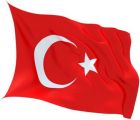 | Need-based grants are provided by the Higher Education Credits and Hostels Institution Exceptionally, students who study in non-profit foundation universities may receive discounts from the university. For example, depending on the performance they show in university entrance exam, they may be asked to pay only half or five eighths of the fee (this may vary from one university to another). | Loans: In 2014, students in the 1st cycle receive TL 300, while students in the 2nd cycle are provided with TL 600 per month. Students who receive this amount of money have to pay back upon their graduation in instalments. |
Wales 2015/16 - grants and loans | 1st cycle full-time – the support package includes a need based grant for living costs. The grant is awarded on a sliding scale with a full grant of GBP 5 161 for students with a household income of GBP 18 370 or less. In 2013/14, 68 % of applicants eligible for support (grant and/or loan) were awarded a grant: 39 % were awarded a full grant and 29 % were awarded a partial grant. | 1st cycle full-time – the support package includes a loan for living
costs for all students. The maximum loan for students living in the
family home is GBP 4 162. For students living away from the family home,
the maximum is GBP 5 376 outside London and GBP 7 532 in London. The
amount is reduced for students who receive a need based grant.
Repayments as for tuition fee loans. 1st cycle part-time – a need-based course grant is available to students studying at an intensity of at least 50 %. 2nd cycle – there is no universal support package. 2nd cycle postgraduate non-taught – individual institutions can provide a merit based grant, which tends to follow the minimum stipend recommended by Research Councils UK, GBP 14 057 for 2015/16. |